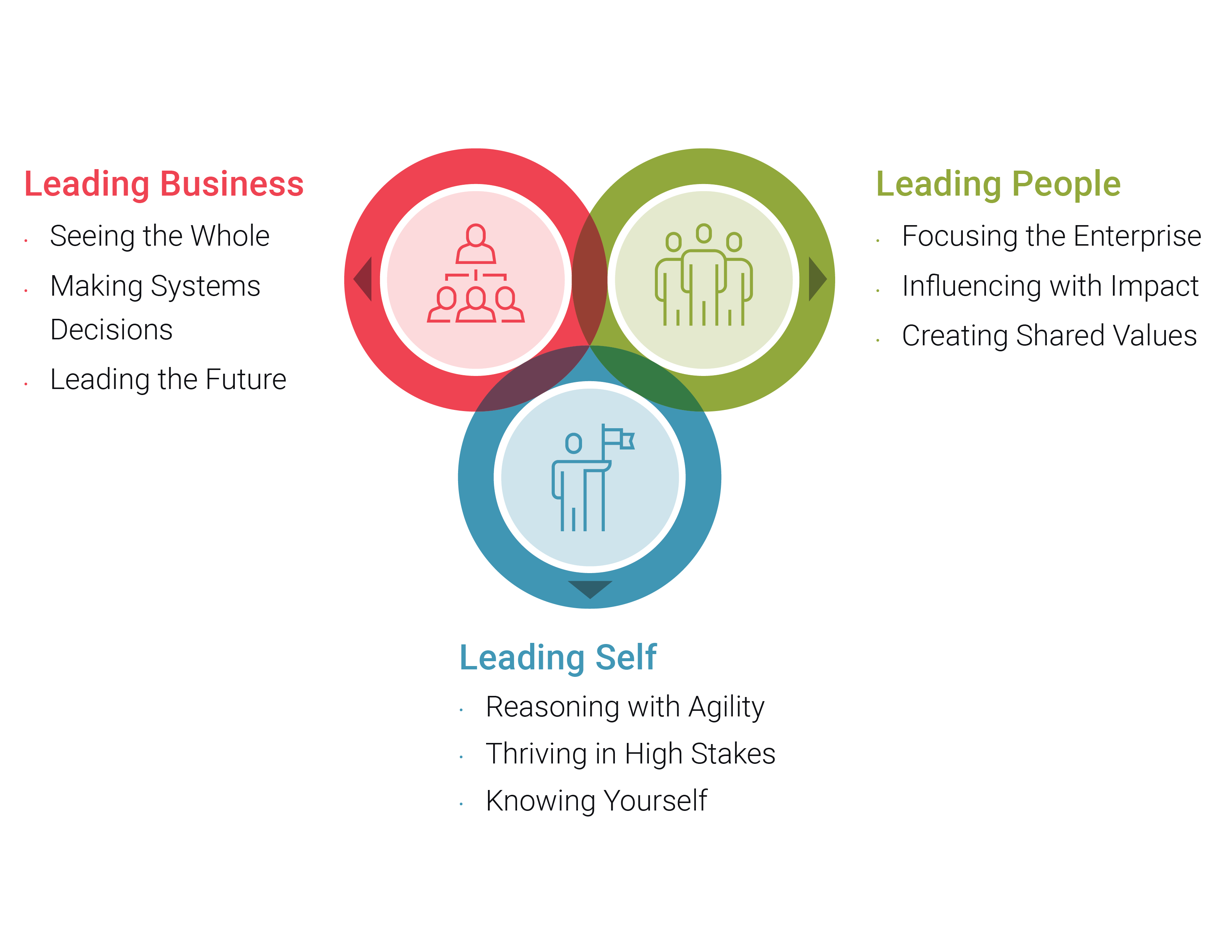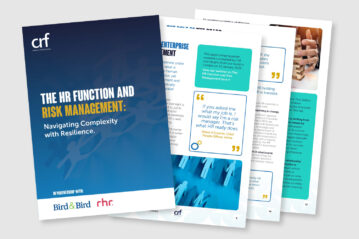The Problem with Potential
High-potential models are fundamentally flawed when it comes to identifying those individuals within your organization who have the ability to take on more complex, senior roles. Although high-potential models can play a useful role in differentiating high-value talent, they are insufficient for measuring enterprise capability.
Potential is often ambiguously defined as the ability to “do more.” This ambiguity creates challenges in determining who has potential and results in an overreliance on past performance, relationships, exposure, and assumptions, and it introduces bias into talent decisions. Likewise, potential is frequently articulated as a forced dichotomy—those with potential and those without, which creates challenges with transparency, false expectations, and motivation.
Focus on Readiness to Scale Rather than Potential
As opposed to traditional high-potential models, RHR’s Readiness for ScaleSM (RFS) model answers the question, “Potential for what?”—for the company and for the leader. We specifically home in on getting leaders ready to take on complex enterprise-leadership roles by transitioning them from doing to enabling others. We see leaders’ readiness for scale as a multidimensional continuum that fully captures areas of strength and opportunity. This supports honest conversations and developmental guidance, which results in a more future-focused, growth-oriented, and objective view of the leader’s capabilities.
The reality is past performance is often not an indicator of the suitability of someone to take on a more senior, complex role. Leadership scalability refers to the capacity of a leader to adapt, grow, and excel across varying contexts, challenges, and organizational scales. Unlike the fixed nature of potential, scalability embodies a dynamic trait that enables leaders to navigate complexities, lead diverse teams, and drive impactful outcomes irrespective of the organizational setting or scope.
Working with leaders over many decades has taught us that each leadership transition brings additional complexity and shifts in expectations and demands. Early-career leaders are recognized, celebrated, and promoted based on a set of skills that are important but insufficient for the critical top jobs. Expectations for technical knowledge, quality, perfection, and work ethic are replaced with the need to deal with complex trade-offs, thoughtfully take risks, and inspire performance in others. As a result, many companies find themselves with an underprepared and deficient pipeline for senior leadership.

Introducing RHR’s Readiness for ScaleSM Model
Our RFS model has proved an easy-to-understand and effective development tool for thousands of leaders. We look at leadership scalability as it relates to three key areas: leading business, leading people, and leading self. It’s a simple yet powerful framework to accelerate leaders’ ability to grow and develop.

Leading Business includes the content a leader must manage. It requires integrating inputs into a holistic understanding of the business, making complex trade-off decisions in the best interests of the whole, and balancing near-term demands and future readiness.
Leading People requires galvanizing the human assets of the enterprise to deliver on the agenda, building a shared understanding and energy around the direction, and creating an environment that guides behavior, builds engagement, and inspires effort.
Leading Self is the engine that fuels longevity and adaptability and requires the mental agility to learn and adapt, the resilience to thrive in high-pressure environments, and the self-awareness and developmental mindset to evolve.
The Readiness for Scale Assessment Series
The RFS assessment series is based on the RFS model and includes three configurable solutions to address various leadership needs:
- RFSexecutiveSM — Ideal for identifying development areas for current senior leaders and assessing the readiness of internal or external candidates for critical executive roles using our RFS model and your custom dimensions.
- RFSpipeline® — Ideal for the selection or development of future senior leaders and for identifying individual and organizational development needs using our RFS model.
- RFSinsightsSM — Ideal for scanning your deep bench to identify and develop future leaders using algorithmically generated insights.
Each of these assessment solutions allows us to provide clear, concise, and actionable feedback to leaders. Furthermore, our expansive database of leadership-assessment data allows us to benchmark leaders to help organizations make better-informed talent decisions. Using our proprietary algorithm, we can segment your leaders by their readiness for scale. This helps your organization select the right talent for mission-critical roles and maximize your investments in leadership development by prioritizing individuals with the greatest readiness for scale.
Case Study: Developing Leadership Scalability
The transition from a high-performing midlevel leader to enterprise leadership can be especially challenging. One leader we worked with was promoted based on her stellar technical skills, wide network, and strong reputation across the company. Although smart, talented, and experienced, the leader was quickly overwhelmed by the new role, as she was taking on more projects, moving faster, and spending evenings and weekends working. The real problem was the leader was doubling down on the things that make a successful individual contributor. During one coaching session, the leader reported feeling like all the rules had changed overnight, yet no one had bothered to communicate the new expectations.
Leveraging her assessment results, we co-created an individual development plan and provided support to help her in three key areas:
- Making systems decisions—exercising more decisiveness and taking on responsibility for decisions.
- Focusing the enterprise—setting the agenda, creating priorities, and getting work done through others.
- Influencing with impact—being more decisive and empowered to make commitments and assert a point of view.
By focusing on promoting individuals based on their readiness to handle more-complex roles, organizations can cultivate a talented, motivated, and strategically aligned workforce capable of driving sustained success and innovation.
Our Impact
Since we introduced the RFS model and assessment series, we have assessed nearly 5,000 individuals around the world and across industries. We have evaluated the accuracy and impact of our assessments multiple ways over the years and found that more scalable leaders are:
- Rated as highly effective or exceptional by stakeholders 70% of the time.
- 35% more likely to hold senior positions.
- 86% more likely to be promoted within two years of assessment.
- Promoted on average about two years earlier.
- More mobile within and outside their companies and have more robust networks.
Let’s Talk
RHR has nearly 80 years of experience working with leaders at the most senior levels and is developing a profound understanding of what it takes to be successful. We have seen leaders who are able to make the leap to enterprise leadership easily—and many more who aren’t. We can help you cultivate a pipeline of leaders who are ready to scale. To learn more about RHR’s approach, contact: Robert Abramo or Daniel Russell.















